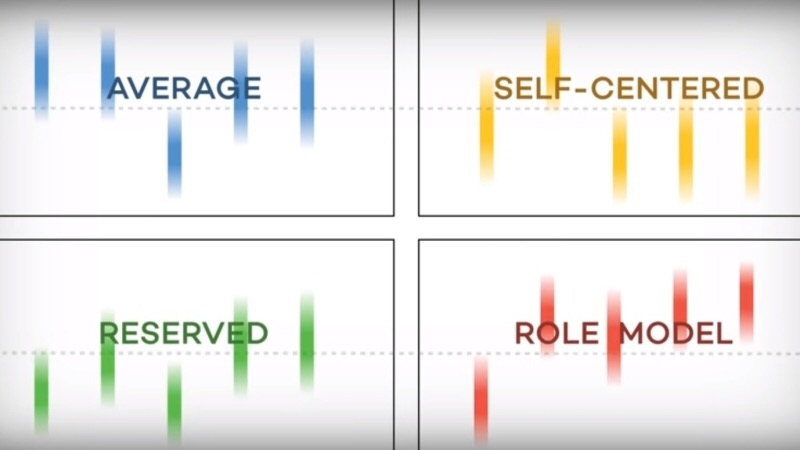American Psychologists Identify Four Personality Types
American psychologists have proposed a new personality typology. After analyzing data from more than one and a half million people who participated in a survey based on the “Big Five” personality traits, researchers identified four personality types: “average,” “reserved,” “self-centered,” and “role model.” The study was published in the journal Nature Human Behaviour.
The Big Five Personality Traits
Psychologists distinguish five main personality traits, also known as the “Big Five”: extraversion, agreeableness, conscientiousness, neuroticism, and openness to experience. Individual differences in these traits largely predict a person’s behavior in social settings and their ability to adapt to changes in the environment.
Based on these five traits, it is possible to effectively study personality typology by identifying several basic personality types. However, many previous attempts have been limited by small sample sizes, making it difficult to generalize findings to the entire population. This is especially problematic from an anthropological perspective, as it does not adequately account for the influence of diverse cultural factors.
A Large-Scale, Systematic Approach
To address this, American psychologists from Northwestern University, led by Luís A. Nunes Amaral, analyzed four datasets, each containing data from several hundred thousand people (ranging from 100,000 to 500,000). The researchers compiled a diverse sample totaling more than one and a half million men and women of different ages from various countries.
For each participant, information on the Big Five traits was available. After analyzing the results, the researchers clustered each trait using z-scores ranging from -1 to 1. They found that, based on the distribution of these scores, four personality types could be identified:
- Average: High in neuroticism and extraversion, low in openness to experience.
- Reserved: Low in neuroticism and openness, average in conscientiousness and agreeableness.
- Self-centered: High in extraversion, below average in all other traits.
- Role model: High in all traits except neuroticism.
Demographic Influences and Study Limitations
The researchers also examined which demographic factors influence a person’s likelihood of belonging to a particular personality type. For example, women are more likely to be “role models,” while the number of “self-centered” individuals increases with age.
The authors note that, despite the relatively large statistical power of their study, there are some limitations. For instance, the sample included few adolescent boys. Therefore, the results should be generalized to the entire population with caution. Additionally, the validity of the method should be further tested on other large samples.
Personality Stability Over Time
Although a person’s character may change with age, personality remains stable. This conclusion was recently reached by scientists who studied personality traits over a 50-year period.



